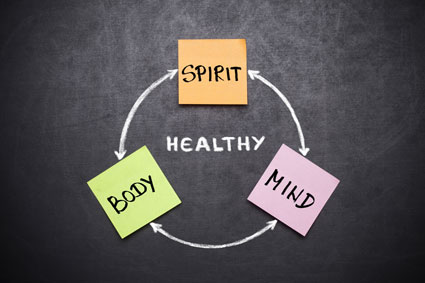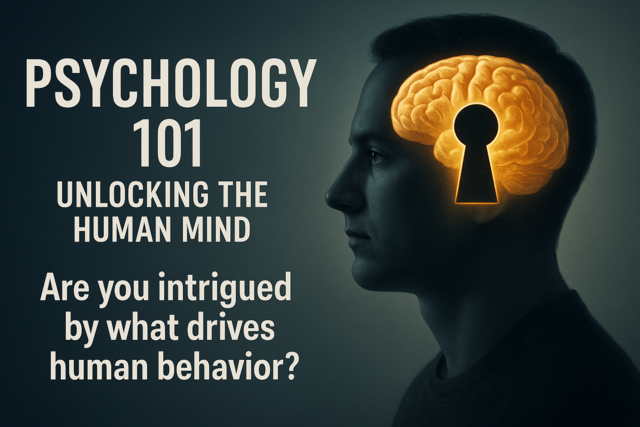The Step of Loving Yourself in the Pursuit of Happiness
Let's begin with an exploration of what many consider one of the most basic tenets of a happy life � self-esteem.
What Is Self-Esteem?
At some point in life, most people will have issues with self-esteem. For some, low self-esteem is chronic; for others, it is a temporary condition.
According to many researchers, there are actually several types of self-esteem, such as intrinsic, extrinsic, stable, and fragile. Because of the wealth of information on, and argument surrounding, self-esteem, we will use a basic definition.
The Merriam-Webster Dictionary defines self-esteem as "a feeling of having respect for yourself and your abilities; a confidence and satisfaction in oneself." In other words, you have a healthy, secure image of who you are and what you're capable of.
Past psychological research has focused on self-esteem as being the most essential key to loving oneself, but some researchers disagree, saying too much self-esteem can lead to either self-conceit and narcissism, or self-criticism and low self-esteem. A narcissist is "a person who is overly concerned with his or her own desires, needs, or interests; for example, "with the rise of TV reality shows, attention-craving narcissists had a public forum for their self-infatuation." (Merriam-Webster Dictionary). Narcissists don't care about others and typically put their own interests above those of anyone else, including friends and family. Someone who behaves this way to the extreme may be diagnosed with narcissistic personality disorder. Individuals experiencing self-conceit are similar to narcissists, although not quite as extreme. A self-conceited individual may exaggerate their accomplishments or abilities, but still have concern for those closest to him or her.
Too much focus on self-esteem can also lead to the opposite effect � excessive self-criticism and lower self-esteem. According to Charles Cooley, self-respect is preferable to self-esteem, since self-esteem relies on comparing oneself with external criteria, such as the success of others. Self-respect, on the other hand, is defined by Merriam-Webster as "a proper respect for oneself as a human being; regard for one's own standing or position." This is more an internal, or intrinsic belief, less subject to external circumstances.
Self-worth is a term often included as part of the definition of self-esteem, but according to a 1997 paper by Leo Bogee, Jr., self-worth is actually a separate concept and should be treated as such. As opposed to relying on external sources of validation, self-worth is an internal belief that you "matter."
The important thing to remember is, do not allow excessive self-comparison or unfair criticisms from others undermine your self-image. One way to do this is to practice self-love.
The Key to Self-Love
Many self-help and positive psychology materials advise you to "love yourself." Sounds easy, right? Well -- perhaps not. Practicing self-love is one of the most difficult things for humans to do, yet it is a true cornerstone for a positive self-image. The fact most of us aren't sure how to even begin such a task only adds to its difficulty. So how does one accomplish this seemingly insurmountable feat?
The answer is self-forgiveness. Here again is something that sounds simple, yet is difficult to grasp. How do you forgive yourself when you've done things you regret?
To begin with, acknowledge you are human, and all humans make mistakes. Come to grips with your mistakes and what you've done, honestly and forthrightly. Without making excuses, examine your action(s) and accept they occurred. Do not hide from personal responsibility, but don't take on extra culpability, either. Once you've achieved acceptance, you can honestly forgive yourself.
For example, imagine you haven't spoken to your sibling in many years, due to a fight the two of you had long ago. Chances are, both of you were partially to blame. Examine the situation honestly. For example, what was the argument about? Who began the confrontation? How did the other party (perhaps you) exacerbate the situation? Is the issue one of actual wrongdoing, or a case of misplaced pride? What portion(s) of the argument and estrangement are your doing?
Once you've determined your actual part in the argument and ensuing estrangement, accept what occurred as well as any feelings you have about the situation. (This includes your mistakes and the mistakes of your sibling as well.) Accepting your feelings and actions with honesty and without judgment will allow you to forgive yourself as well as make peace with the situation.
This brings us to the other party in the situation, in this case, your sibling. What if your sibling refuses to let go of the animosity? What if he/she blames you, or, worse yet, discounts your feelings and/or the situation as unimportant or irrelevant? This creates a difficult situation regarding personal closure; we will discuss this further in another lesson.
Loving yourself is not a matter of false pride or overinflated ego, but a true appreciation of oneself and one's talents and value as a human being.
The Main Emotional Barriers to Happiness
According to California psychologist Dr. Melody London, the two most worthless human emotions are jealousy and regret. Neither can be resolved, and neither has any positive effect on human beings.
Jealousy is sometimes confused with envy, but there are important differences between the two. While envy is "the feeling of wanting to have what someone else has," (Merriam-Webster Online Dictionary), jealousy carries components of bitterness, anger, and resentment, along with a desire to possess what another has. While feelings of mild envy can be motivating (for example, the desire for a nice car like your friend's might motivate you to save money or work harder in order to obtain a similar vehicle), jealousy only breeds animosity and actually lowers self-esteem.
Regret is the constant nagging in your mind that insists, "I should have done things differently." Most of the time, regret centers around situations that cannot be changed. For example, if you ignore an instinct to go outside and roll up your car windows, and it later rains and soaks the inside of your vehicle, ruining your upholstery, you may feel regret for failing to follow your instinct (or ignoring it due to laziness) to go outside and close the car windows. What good does it do, after the fact, to regret your decision to take a chance on leaving the windows down? The vehicle is now wet inside. Your best reaction would be to focus your energy on fixing the situation as best you can, then making an agreement with yourself to always follow that instinct (or push through your laziness) in the future. (This is a very simple example, but the process is the same for large "life" regrets, as well, such as marrying the wrong person or taking the wrong job. Larger regrets often require this exercise be repeated.)
Purpose and Mental Fortitude
One thing no one can really live without is some kind of purpose. Whether big, such as saving an endangered species, or small, such as helping friends or family with tasks, everyone needs some "reason for living."
The psychological definition of purpose is, "The reason something exists or some act is undertaken; a person's actions or intent" (Psychology Dictionary).
Most people think of "purpose" in gigantic terms � fighting publicly for a cause and sacrificing personal freedom, like Nelson Mandela; leading a charitable organization; being the CEO of a successful international business. But in reality, everything has a purpose (think about a broom, for example; its purpose is to sweep dirt off the floor). So how does one acquire a purpose that matters more than "sweeping the floor?"
First, realize a purpose does not need to be enormous or life-encompassing to matter. Any purpose at all, such as ensuring that a necessary and important chore, is done each day, can give meaning to life.
An excellent example is caring for pets. Particularly for those with depression, pets can be a literal lifeline. If your cat, dog, horse, or hamster requires daily care and attention, you can't very well spend several days in bed without moving, except to use the bathroom. The dishes may go undone, your hair may go unwashed, but you have to get up to care for your pet. In return, they provide affection and companionship, which helps ease depression. (Studies have shown petting a purring cat lowers blood pressure and calms heart rate.)
Typically, depressed individuals shy away from "going out in the world," but doing so is precisely what is needed to ease depression, and service to others is an excellent way to do this. Joining a charitable organization, such as a meal delivery service for homebound seniors, is an excellent way to give one's life purpose. Those who shy away from joining groups can find purpose in providing needed service to friends, family members, neighbors, or your fellow church members. Tasks, such as running short errands, or helping with housework, may seem inconsequential, but it can make a world of difference to both giver and receiver.
Purpose is not a static thing, nor should it be. Purposes can be large or small, personal or with wider effect. All are important, and purpose changes with time.
Mental fortitude is mental strength, which allows one to face adversity with courage. Fortitude strengthens with accomplishment and overcoming grief and pain. Difficulties in one area of life, such as physical ability, can lead to success in another. The late Christopher Reeve is an excellent example of this. After suffering a near-fatal fall from a horse during competition and becoming paralyzed from the neck down, Reeve admitted he considered suicide, but chose instead to live and champion the cause of stem-cell research, which he did until his death in 2004 at age 52 from an infection related to his paralysis.
Not all examples of mental fortitude are this enormous, of course, but overcoming any adversity helps strengthen fortitude and raise self-image.
Saying "No" � The Importance of Self-care
Self-care is, quite literally, the care of oneself � taking care of one's daily needs for food, shelter, health, etc. It also means avoiding danger and ensuring one's physical, emotional, and mental "selves" are healthy.
A key component to self-care is developing the ability to say "no." The first thing which comes to mind when you think of saying "no" is probably either, "I say �no' all the time," or "I can't say �no'! I'm the only one who can [fill in the blank]!" Both of these thoughts are very likely wrong.
First, many people who routinely say "no" to certain requests do not say "no" to the important things. A parent may prevent their young child from misbehaving in public, but tolerate whining or temper tantrums at home. Parents of a teenager may say "no" to a request to stay out a half hour after curfew, but allow their teenager to smoke or drink alcohol at home. It is important to "choose your battles" � in other words, if the request made causes no danger or difficulty, it's easier to say "yes" and save the "no" argument for more dangerous requests.
Second, despite personal beliefs, one individual is not responsible for "everything." Whether it's working long hours as a community volunteer, being overburdened at work, or doing too much for your family at home, it seems hardest to say "no" to things and people we care about most and/or do not wish to disappoint. The problem is, spreading oneself over a multitude of activities not only raises the likelihood of disappointing someone, it leaves no time for "self."
The need for "self" is essential. We'll explore this concept further in future lessons, but for now, just keep in mind if you don't have energy for yourself and your own needs, eventually you will not have energy for anyone at all.
One way of practicing good self-care is to honestly assess what you're spending your time on, and rank the importance of each thing. Pay particular attention to those things you find most stressful. Are they vital to your life and well-being, or that of those you love? Can someone else ease the burden somehow? Is obtaining help merely a matter of training someone else on how to do what you do, such as teaching your older children how to do their own laundry? Is it just an unnecessary activity or obligation you're shouldering to avoid hurting someone's feelings or upsetting them?
If it is not vital to you or your loved ones, consider dropping the activity. If someone else can take over for you, allow them to, and train them, if necessary. While others may balk at first (some may even oppose you or try to "guilt" you into relenting), it is ultimately not their decision how you spend your time and energy. As you practice saying "no," it will become easier and your powers of discernment regarding requests will sharpen, allowing you to say "no" before becoming involved.
One final word: Do not discount the power of "gut intuition." If a request makes you feel uncomfortable or anxious, say no immediately. By trusting your instincts, you can avoid energy-sapping situations.
The Trap of Social Media
There is no denying social media is an integral part of our lives. Even those who abstain from sites such as Facebook or Twitter, cannot help being exposed to the effects of these sites �viral videos, for example. Not to mention the plethora of news items regarding celebrities and "reality stars" who take to social media to express their opinions (sometimes idiotic or unpopular opinions at that). Often, social media seems more like a platform for immature behavior and sniping than a communication tool!
The news is full of stories of young people who've committed suicide after being bullied on social media, and many adults suffer loss of self-esteem and depression due to unkind things "said" to them on social media.
It is very easy to say all kinds of nasty things to others without understanding (or caring about) the impact words can have. After all, you're just "talking" to a screen, right?
In order to minimize the negative impact social media can have, it is important to remember a few things. First, the media screen creates a sense of "impersonalization," so most people feel complete freedom to say whatever they wish on the Internet without impact or consequences to themselves. For the most part, this is true, but this is changing, with some Internet bullies being held legally, if not criminally, responsible for self-harm and suicides committed by their victims as a direct result of taunts on social media.
The best way to avoid such bullies is to monitor your own posts. Do not say anything online you would not say to the person's face. If you make a mistake, apologize. If someone starts a "flame war" with you, terminate the conversation. (There is a wonderful quote by the late science fiction writer Robert Heinlein which applies here: "Never try to teach a pig to sing. It wastes your time and annoys the pig." In other words, arguing with someone who refuses to (or is incapable of) understanding another point of view will be fruitless; it's best to just "walk away and save your breath.")
No matter what occurs, always remember the online bullies are "talking" to a flat screen, not a person. It is not necessary for you to "own" their opinions, nor need you contradict their posts or defend yourself to them. Words online from anonymous persons can only harm you if you allow them to.
If the problem is indeed much larger than a simple online spar with a faceless individual (such as a bullying situation), seek help from friends, family, or professionals.






























